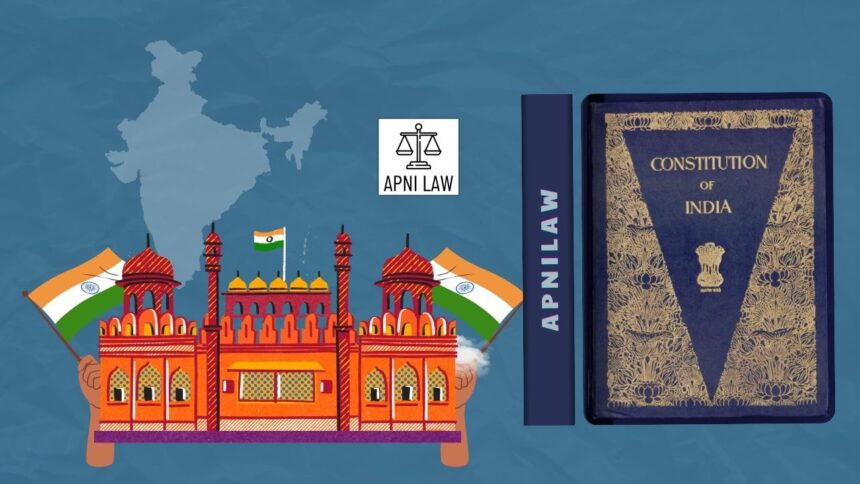Introduction
A nation’s financial stability shapes its governance, development, and overall constitutional functioning. When that stability is threatened, the Constitution provides a special safeguard through Article 360, which deals with the declaration of a Financial Emergency. This provision gives the Union Government extraordinary powers to control public spending and protect the economic security of the country. Although India has never experienced a Financial Emergency, understanding Article 360 is essential because it highlights how the Constitution prepares for fiscal crises. It explains the State’s powers, limits, and duties in moments of economic breakdown. By exploring examples and judicial perspectives, this article helps readers grasp how Article 360 functions and when it becomes relevant.
Meaning and Constitutional Purpose
Article 360 empowers the President of India to declare a Financial Emergency if the financial stability or credit of India or any part of its territory is threatened. Once proclaimed, the Union Government gains the authority to direct states on financial matters, regulate the distribution of funds, and modify salary structures of government officials. The purpose of this mechanism is not to punish states or central institutions but to maintain the integrity of the nation’s financial system during crisis situations. This provision acts as a safety valve, ensuring that a temporary fiscal crisis does not collapse the federal structure.
Procedure for Proclamation and Approval
A Financial Emergency begins only when the President is satisfied that the financial stability of the nation is in danger. The proclamation must be approved by both Houses of Parliament within two months. Once approved, the Financial Emergency continues until revoked. Unlike National and State Emergencies, there is no time limit on how long a Financial Emergency can remain in force. However, the President can revoke it at any time if normal financial conditions are restored.
Effects of Declaring a Financial Emergency
A proclamation under Article 360 drastically alters how financial administration functions. The Union Government can issue directions to states on financial matters, and the executive authority of the states becomes subject to central supervision. The salaries and allowances of government employees, including judges of the High Courts and Supreme Court, may be reduced. The central government may also require states to reserve all money bills and financial proposals for presidential consideration. These measures ensure that the national financial structure does not collapse during economic distress.
Judicial Limits and Constitutional Safeguards
While Article 360 grants extensive powers, it is not free from constitutional checks. Courts cannot question the President’s satisfaction during the period of emergency, but judicial review is available once the emergency ends. This ensures that any misuse of the provision can be evaluated after restoration of normalcy. The constitutional design prevents abuse while ensuring that necessary actions are taken swiftly in times of crisis. India’s democratic framework remains protected even during such extraordinary measures.
Examples to Understand How Article 360 Works
Hypothetical Example: Sharp Economic Downturn
Imagine a situation where India faces an unprecedented economic recession. Tax revenue falls sharply, exports decline, and the nation’s credit rating collapses. In such a scenario, the President may declare a Financial Emergency to prevent the system from failing completely. The Union Government may direct states to reduce public expenditure, freeze non-essential projects, and revise salary structures. Once financial stability improves, the proclamation may be revoked.
Hypothetical Example: A State Facing Severe Fiscal Collapse
Suppose a particular state mismanages its finances and reaches a point where it cannot pay salaries, repay loans, or run essential public services. If this financial crisis threatens the stability of the nation as a whole, the President may declare a Financial Emergency covering the entire country. The Union Government may direct states to follow a strict financial plan until the crisis is resolved.
International Comparison for Clarity
Countries such as Greece and Argentina have faced severe financial crises, leading to debt restructuring and external interventions. Although India has never used Article 360, the provision ensures that the government has constitutional tools to prevent a similar crisis from escalating.
Frequently Asked Questions
Has India ever declared a Financial Emergency?
No. Since the adoption of the Constitution, India has never declared a Financial Emergency under Article 360.
Can salaries of judges be reduced during a Financial Emergency?
Yes. Article 360 specifically allows the Union Government to reduce salaries and allowances of all government officials, including Supreme Court and High Court judges.
Does Article 360 affect state autonomy?
Yes. During a Financial Emergency, states must follow the financial directions issued by the Union Government. However, this control is temporary and ends once the emergency is revoked.
Is there a time limit for a Financial Emergency?
No. A Financial Emergency has no maximum duration. It continues until the President revokes it.
Can courts review the declaration of a Financial Emergency?
Courts cannot question the President’s satisfaction while the emergency is in force. However, they may review governmental actions after the emergency ends.
Conclusion
Article 360 represents one of the most powerful yet rarely used emergency provisions of the Indian Constitution. It protects the economic foundation of the nation by ensuring that the Union Government can take decisive action during periods of extreme financial instability. Although its broad powers can significantly alter federal relations, the Constitution contains safeguards that prevent misuse. While India’s economic resilience has ensured that a Financial Emergency has never been declared, understanding Article 360 remains important for students, policymakers, and citizens. For deeper guidance on constitutional provisions or legal interpretation, ApniLaw experts can help you navigate these topics with clarity and accuracy.








